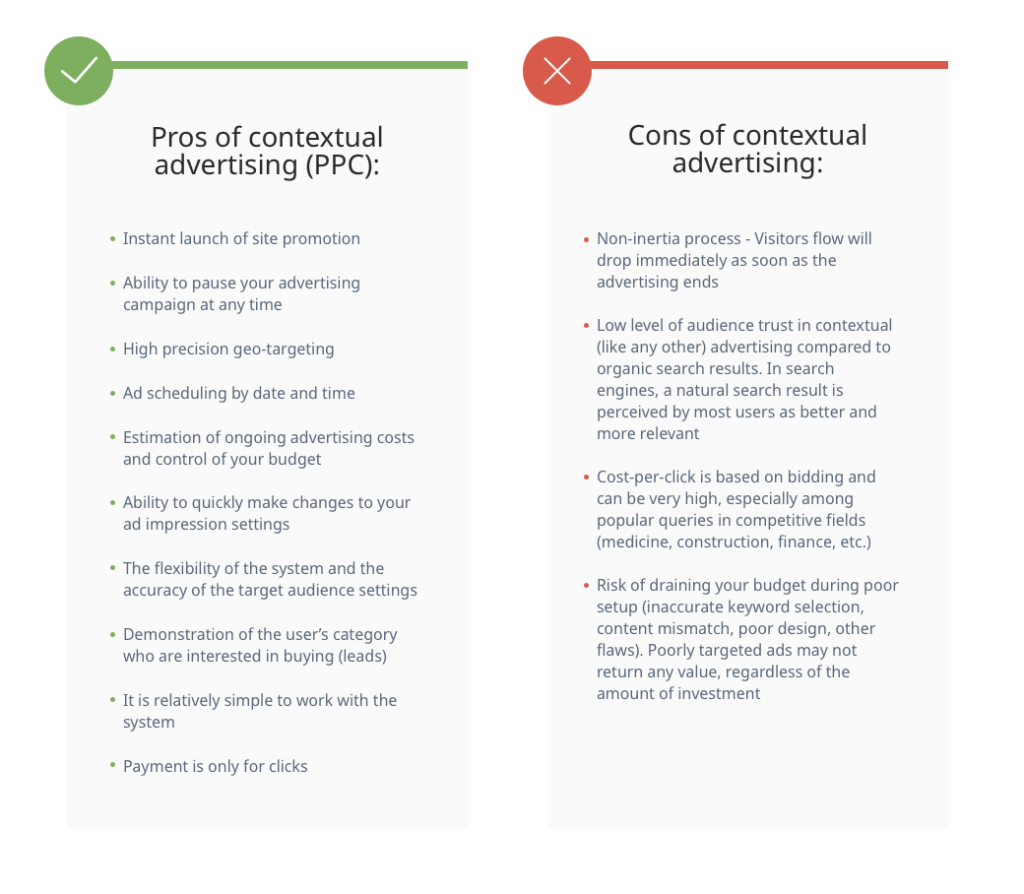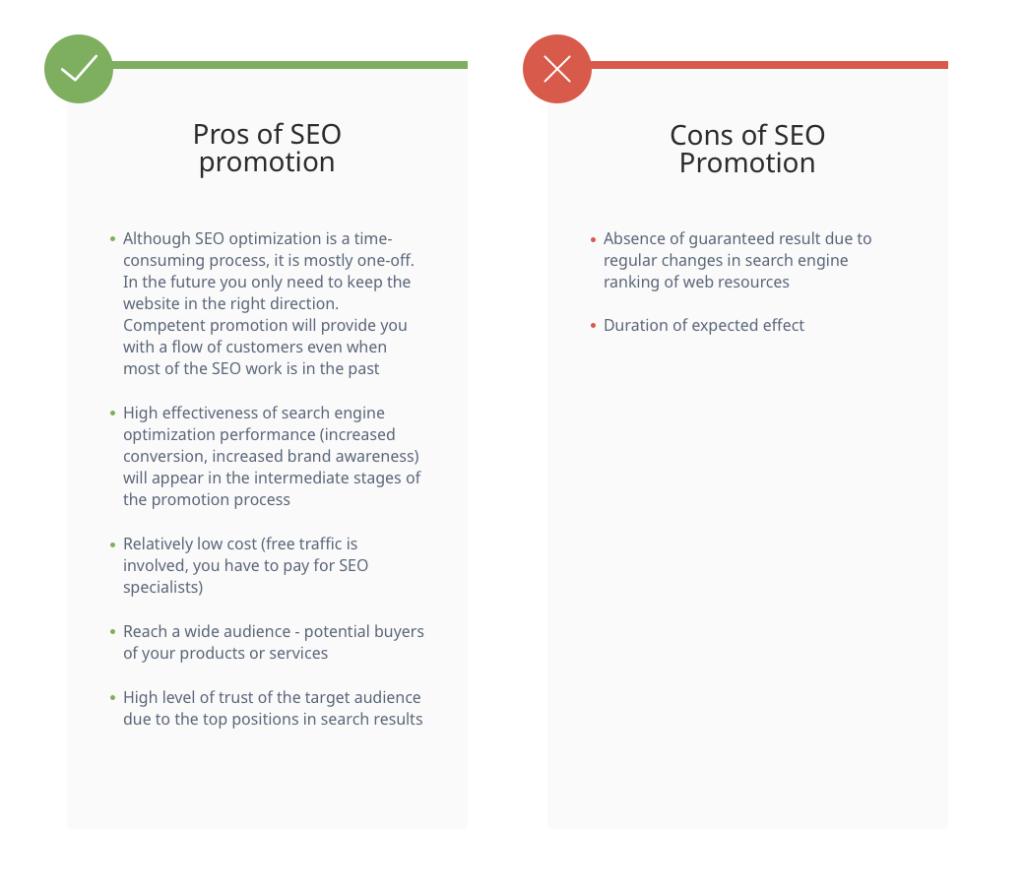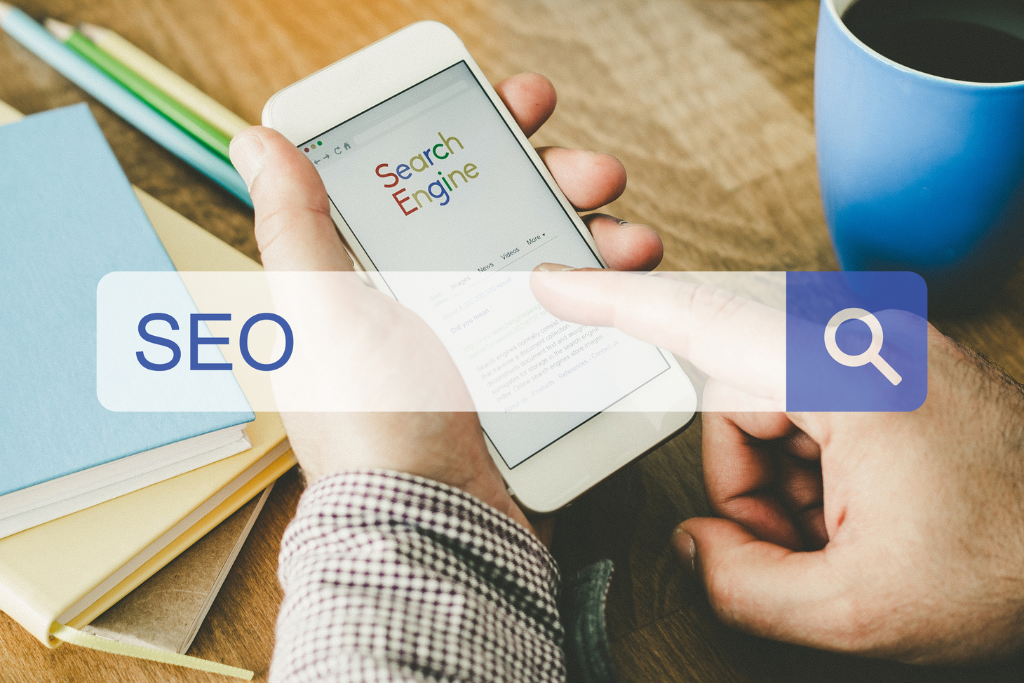More and more of our customers are asking us the recommendations how to get the most users to the website and what kind of promotion to choose? Nowadays SEO and PPC are known to be the most powerful and effective tools for promoting a commercial web resource and boosting sales.
Some businessmen imagine these areas of Internet marketing as contradictory. We have found that the approaches are different, but not mutually exclusive.
Contextual advertising with pay-per-click marketing can bring results from the first day of promotion, in return complex SEO work takes a lot of time and effort, in the best case near 6 months for a new website. Contextual advertising stops working as soon as the money is out of balance, while SEO aims to bring the website to the leaders in organic search.
Understanding the advantages and disadvantages of each method of promotion gives you the awareness you can choose the most effective way for your business.
SEO VS Contextual advertising: What is the difference?
To be 100% sure of your choice, you need to carefully understand the differences between contextual advertising and site search engine optimization. The main differences between SEO and PPC marketing are:
- Show location. In the case of SEO, Google will determine the position on which your site will appear in the search results. Getting to the top 10 and then to the top positions in search by SEO is a real but long-term goal. Contextual advertising will immediately place your ad in the search results page where you want to see it and are ready to pay for it.
- The speed of the result. The PPC shows the results instantly, just after the campaign starts, so you’ll see the effect on the same day. You will have to wait at least a month for a minimum return on SEO, and six months or more for significant results.
- Control. You can track changes in delivery data as soon as you launch a contextual advertising campaign, and during SEO promotion, you will have to wait a while again to see the effectiveness of professionals.
- Purposes. The objective of contextual advertising is to attract the target audience of the company to the website and to achieve the highest possible conversion of website visitors to customers.
Search engine promotion has a different aim – increase search engine rankings and provide a high level of users trust.
Contextual advertising is usually called a customer’s small text ads in the search bar over other results. For example, when you order contextual advertising on Google Ads, you will only pay for user referrals. It looks attractive, doesn’t it? Now let’s take a closer look at hidden pros and cons of this type of ad.

SEO promotion is a whole set of activities aimed at getting high positions on specific search queries. It involves many processes, from site analysis and competitive research to refining the structure of a resource and defining a strategy for its development and improvement.

Choose one tool or combine them?
After analyzing all the pros and cons of SEO and PPC, a very clear and logical conclusion is coming- search engine optimization will provide the site with basic traffic over time. Contextual advertising will become an indispensable tool for achieving short-term marketing goals (for example informing about promotions and sales in an online store).
Each marketing channel is relevant in certain situations, so it is impossible to make firm conclusions about the superiority of one over the other. Therefore, the ideal option is to consider the combination of both directions. Try to get the most out of each tool, and most importantly delegate the conduct of advertising campaigns and site optimization exclusively to competent specialists.





